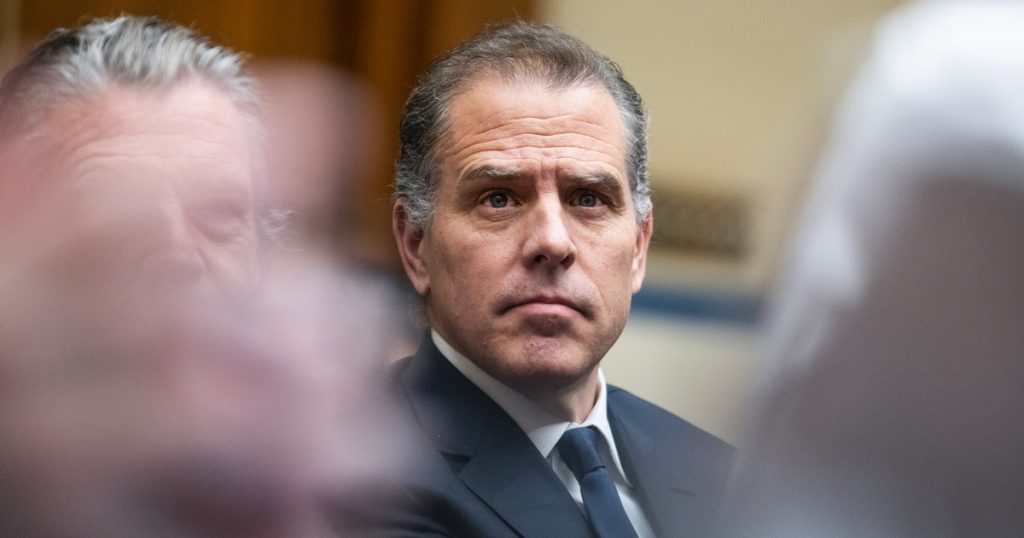Lawyers for Hunter Biden argued in federal court in Los Angeles for the dismissal of tax charges against him, claiming the case is politically motivated and driven by pressure from Republican lawmakers. They alleged that prosecutors succumbed to external influences, particularly in the aftermath of an impeachment inquiry into President Joe Biden triggered by an earlier plea deal that fell through. Biden’s attorney, Abbe Lowell, emphasized the irregularity of the case and suggested that it was orchestrated to target his client, who was not present in court.
U.S. District Judge Mark Scarsi presided over the hearing, where arguments were presented by both Biden’s legal team and special counsel David Weiss’ office. While Scarsi did not immediately issue a ruling on the motions filed by the parties, he expressed a desire for the case to proceed through the pre-trial process expeditiously. In attendance at the hearing was David Chesnoff, representing ex-FBI informant Alexander Smirnov, who is implicated in providing false information about Hunter Biden and his father to the FBI. The potential impact of arguments made in Biden’s case on Smirnov’s situation was a relevant concern for Chesnoff.
Last year, Weiss filed nine tax-related charges against Hunter Biden in a California federal court, alleging a scheme to evade federal taxes amounting to at least $1.4 million. The indictment accused the president’s son of indulging in an extravagant lifestyle involving spending on drugs, escorts, luxury hotels, cars, and personal items. Hunter Biden pleaded not guilty to the charges in January, prompting his legal team to file motions seeking their dismissal. They contended that the prosecution unfairly bowed to political pressure and acted outside the bounds of their authority, among other issues.
Federal prosecutors countered Hunter Biden’s assertions, dismissing them as a conspiracy theory intended to evade tax charges following the collapse of the initial plea deal. They refuted claims that external pressures influenced the decision to bring charges against Biden, emphasizing his culpability in a tax evasion scheme. In addition to the tax charges, Biden faces federal gun charges in Delaware for allegedly possessing a firearm while using narcotics, with the trial scheduled for June. He has been a central figure in House Republicans’ impeachment inquiry into the president, prompting a closed-door deposition with the GOP-led committees and criticism of the investigation as a sham.
Hunter Biden’s legal team maintained that the prosecution’s actions were unprecedented and characterized by overreach, demanding the dismissal of charges on several grounds. They argued that prosecutors had reneged on agreements, succumbed to political pressure, and misrepresented evidence to the court, among other misconduct allegations. The defense portrayed Hunter Biden as the target of a politically motivated prosecution, highlighting the intense scrutiny and legal challenges he has faced in connection to his father’s presidency. The outcome of the hearing and subsequent rulings by Judge Scarsi will determine the future trajectory of the tax charges against Hunter Biden and their implications for the broader political landscape.












